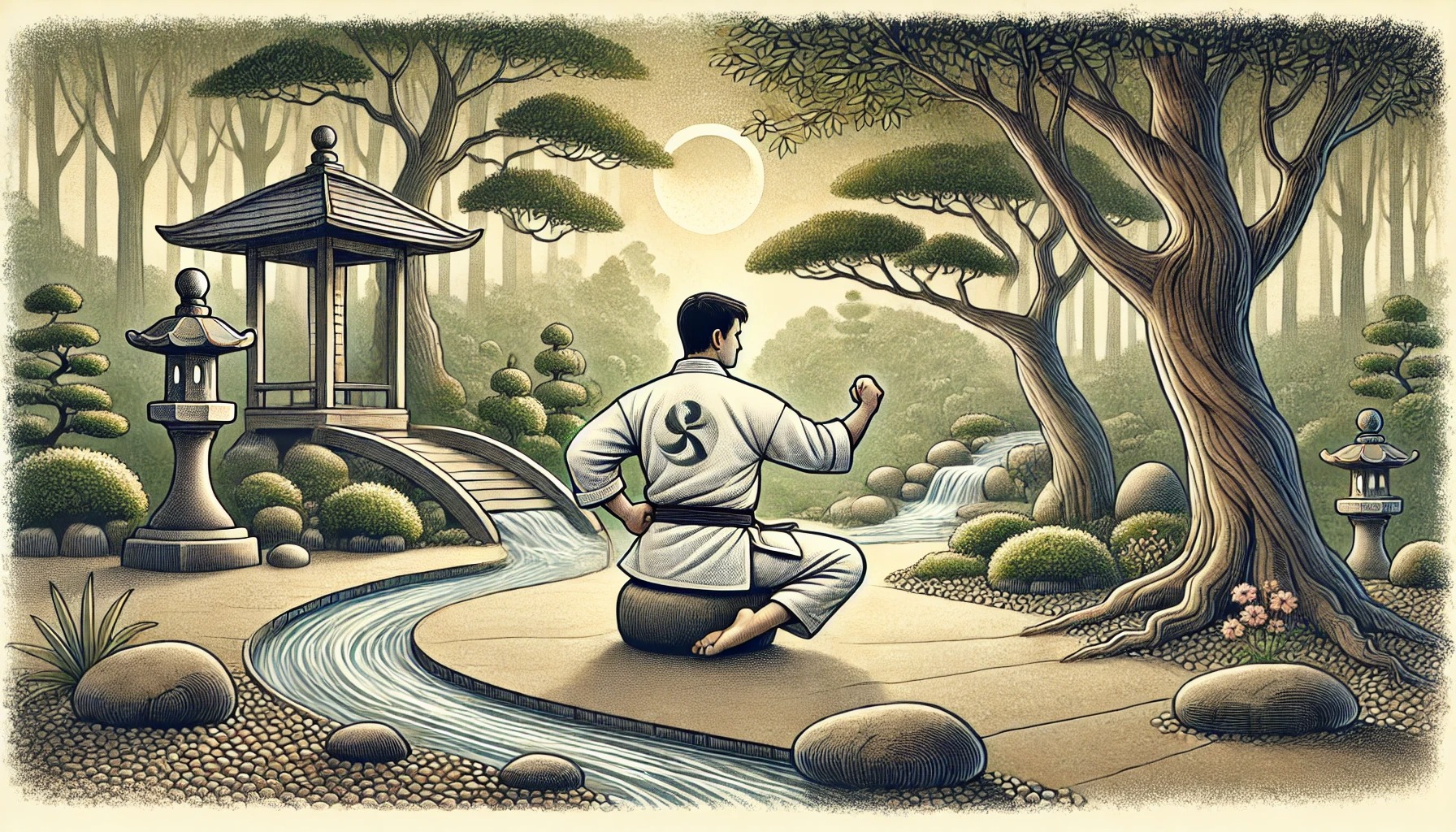Karate is often viewed as a powerful physical practice, rooted in strikes, blocks, and rigorous training. But behind the external movements lies a deep spiritual component that draws heavily from Zen Buddhism. For many practitioners, Karate is more than just a martial art—it is a path to self-realization, inner peace, and the cultivation of a harmonious mind and body.

The Zen Connection
Zen Buddhism and Karate share a common goal: the achievement of a state of mindfulness and self-awareness. In Zen, practitioners seek to quiet the mind and attain enlightenment through meditation and discipline. Similarly, in Karate, the aim is to master both the body and the mind through focused training. The two are intertwined, with many of the principles of Zen meditation being integral to Karate practice.
In Karate, every movement is meant to be deliberate and mindful. The focus is not solely on executing the perfect punch or kick but on being fully present in each moment. This mindfulness, known as zanshin, is at the heart of both Zen and Karate. It encourages practitioners to develop a calm and centered state of mind, both in the dojo and in daily life.
Breathing Techniques and Meditation
Breathing plays a vital role in both Zen and Karate. Proper breathing techniques are taught early in Karate training, as they help practitioners control their energy (known as ki) and maintain focus during practice. In Zen meditation, breathing is used as a tool to center the mind and connect with the present moment.
In Karate, breathing is synchronized with movements to increase power, conserve energy, and create a rhythmic flow that allows the practitioner to stay calm even during intense situations. This connection between breath and movement helps practitioners enter a meditative state, where their mind becomes quiet and their actions become fluid.
Karate students often begin or end their training with seated meditation, known as mokuso. This practice is an opportunity to clear the mind and reflect on the training, reinforcing the idea that Karate is a path toward spiritual development, not just physical mastery.
Mindful Movement and the State of Zen
Through continuous practice, Karate practitioners strive to reach a state of Zen, where mind and body move as one. This state, often referred to as "mushin" or "no-mind," occurs when the practitioner’s actions are free from conscious thought and flow naturally from their training. In this state, the mind is clear, and the practitioner becomes fully absorbed in the present moment.
Achieving mushin in Karate is a reflection of the Zen ideal of enlightenment, where the individual transcends ego and becomes one with the universe. This state of harmony allows Karate practitioners to move with precision, clarity, and inner calmness, even in the midst of combat.

Karate as a Spiritual Journey
While the physical benefits of Karate—such as strength, flexibility, and coordination—are well-known, the spiritual aspects often go unnoticed by outsiders. Yet for many dedicated practitioners, Karate is a lifelong spiritual journey. It teaches humility, patience, and resilience while encouraging a deep sense of inner peace.
Karate helps practitioners cultivate a balanced life by providing them with tools to manage stress, confront challenges, and maintain a clear mind. The practice of mindful movement and meditation allows them to navigate the ups and downs of life with greater equanimity and self-awareness.
By integrating Zen principles into their Karate practice, practitioners can experience Karate not just as a martial art but as a path toward self-discovery and spiritual growth. The true mastery of Karate is not only measured by physical ability but by the degree to which the practitioner has cultivated peace within themselves.